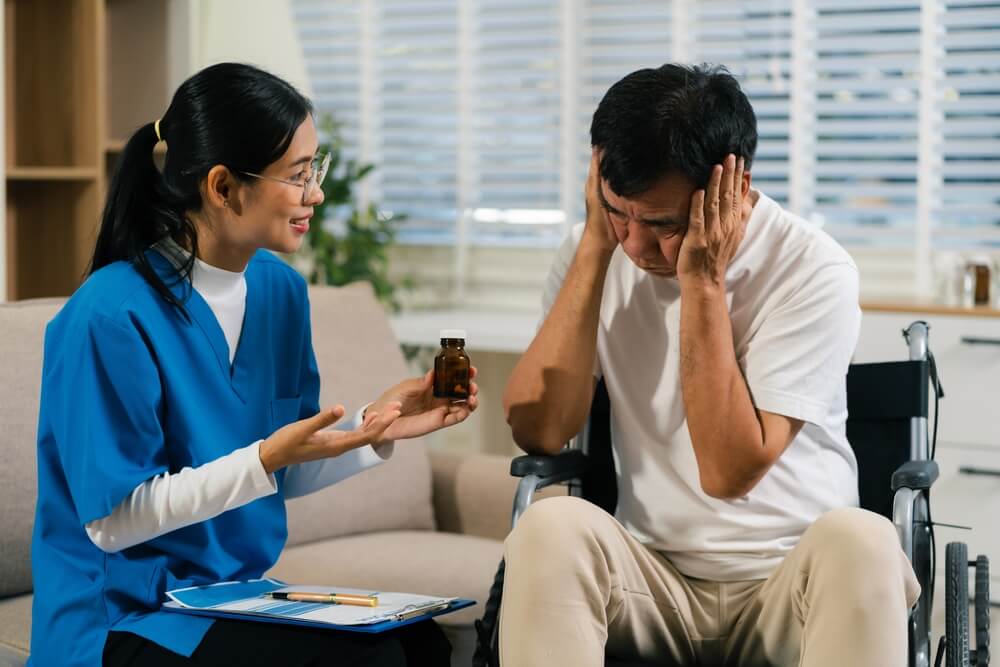

Panic Disorder is a recognized anxiety disorder. It is marked by recurring but unexpected panic attacks. These panic attacks are actually intense episodes of fear. The feat that triggers severe physical reactions even when there is no real danger.
According to the Anxiety & Depression Association of America, 40 million Americans aged 18 or above have panic disorder every year. These statistics make it one of the most common mental disorders. But panic disorder is yet a highly treatable anxiety condition.
Panic Disorder is are frequently occurring reaction (panic attacks) to any situation. They are recurrent and unexpected. These attacks are then followed by persistent concern about having more attacks. The concern involves uncomfortable acts and changes in behavior to prevent them from happening again.
Our body has a “fight or flight” system. It is designed to protect us from real danger. It becomes overactivated in panic disorder. During an episode of a panic attack, it releases a surge of stress hormones like adrenaline and cortisol.
A panic attack peaks within minutes. This leads to rapid heartbeat, trembling, chest tightness, and shortness of breath.
Although panic attacks themselves are not life-threatening. But the fear of experiencing another one can become debilitating. Many individuals restrict their activities. They avoid public spaces. In severe cases, some people even stop leaving home, a condition known as agoraphobia.
The conditions of panic disorder usually come out of the blue. Panic attacks last for 10 minutes, usually. However, there is also anxiety following panic attacks. They can haunt and keep you troubled a lot longer.
Common symptoms include:
→ Pounding or racing heart.
→ Dyspnea or the feeling of being choked.
→ Shivering, perspiration, or chills.
→ Pain or aches in the chest or pressure.
→ Anorexia or stomachache.
→ Dizziness or faintness.
→ Painful or numbness
→ The fear of losing control, fear of death, or going crazy.
→ Depersonalization or derealization: A sense of self or environment-involvement detachment
The panic attacks have no obvious trigger. They keep you in a state of suspense always.
There is no single cause of Panic Disorder. Panic attacks can be caused by a combination of biological, psychological, and environmental factors.
Research shows that Panic Disorder has a strong hereditary component. Studies from the American Journal of Psychiatry indicate that first-degree relatives of people with Panic Disorder are up to eight times more likely to develop the condition.
Brain imaging studies reveal that the amygdala and hippocampus are responsible for processing fear. They are often overactive in patients with Panic Disorder.
Imbalances in neurotransmitters like serotonin, norepinephrine, and GABA also disrupt the brain’s ability to regulate fear responses.
Major stressors in your life, such as sudden loss, relationship difficulties, or chronic pressure, can trigger your panic symptoms. In Frontiers in Psychology, there is a review conducted in 2023. It is narrated that early-life trauma or childhood trauma can increase the chances of developing mental disorders later in life.
There are some medications that can induce anxiety and make you feel symptoms of panic disorder. Thyroid irregularities, stimulant use (like caffeine or amphetamines) can also worsen panic symptoms.
Several factors increase the risk of developing Panic Disorder, including:
At the best mental health care provider in Florida, Health & Psychiatry, diagnosis begins with a comprehensive initial psychiatric evaluation. It is led by Dr. Sajan Dinar’s clinical team.
This includes:
Panic Disorder is diagnosed when recurrent panic attacks are accompanied by one month or more of persistent worry or behavioral change related to the attacks.
 Living with Panic Disorder?
Living with Panic Disorder?Do you know that, if left untreated, your panic disorder can progress into agoraphobia, or maybe depression, or substance use disorders?
However, with professional care, most of the patients regain full functioning. You can also experience long periods of remission.
It’s time to seek professional help!
At Health and Psychiatry, we believe that your recovery from panic disorder involves more than the management of your panic episodes and related symptoms. Our treatment also focuses on helping our patients in rebuilding of their confidence. We restore your emotional balance so you can happily reclaim every day of your life.



Copyright © 2024 Health & Psychiatry, All rights reserved